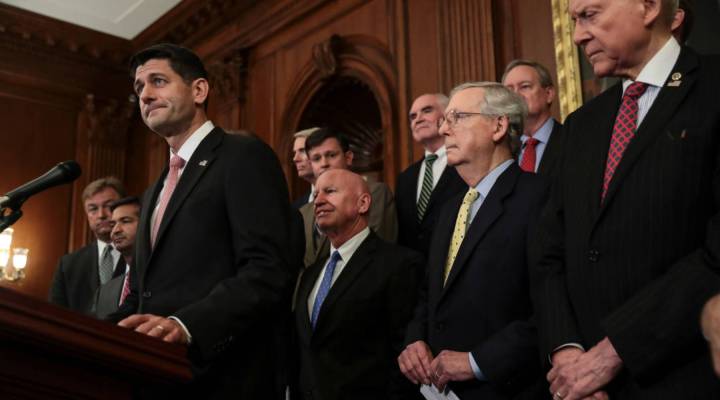
There are some basic tax principles most people can agree with
There are some basic tax principles most people can agree with

This story was last updated at 02:40 p.m. PT.
With the House of Representatives passing its version of a tax reform bill, what can we learn from a person who’s been through a big tax overhaul before? In the 1980s, under President Ronald Reagan, there was Treasury Secretary Donald Regan. And under him, there was a deputy assistant secretary for tax analysis named Eugene Steuerle, who these days is head of the nonpartisan Tax Policy Center set up by the Urban Institute and Brookings Institution.
He joined us to share some advice about tax reform and what it’ll take for people to come together. Below is an edited transcript.
David Brancaccio: So Republicans have their bill to change the tax system here in 2017. You have lived through the last big tax reform, under President Reagan, in 1986. You’ve got some advice to offer these hardworking tax reformers and I think it’s something to do with fundamental principles. What principles?
Eugene Steuerle: Well, in tax reform, there are some basic principles that most people would agree with. One of them is if you have people who who are equally situated, we should probably treat them equally. Roughly speaking, that means if you have the same income as I do, we should pay about the same amount of tax. Another one is efficiency. Simplicity is an obvious one. The ones that are a little more controversial have to do with one aspect of efficiency, which is size of government. If government is bigger, but doesn’t achieve anything, that’s a loss. And one of the big debates is always progressivity, which is an attempt to say those who can pay more should pay more, and those are basic principles and you try to balance them.
| Senate’s proposed tax bill clashes with House plan |
| In just a few seconds, Gary Cohn accidentally illustrated the problem with the Republican tax plan |
Brancaccio: But this is not just a philosophical exercise. You think there’s a better chance of something actually coming together that works if you think about these principles first?
Steuerle: That’s right. So we all probably have this set of wants — lower tax rates, that’s a legitimate want. You might want to give more to the poor — that’s a legitimate want. You might worry about the corporate tax — that’s a legitimate want. But you can’t just sort of stack up a set of wants and figure out how it’s going to accommodate. It doesn’t mean you’re going to do it very efficiently. And then another issue is the balance sheets. You know a tax cut today that’s not paid for basically means somewhere somebody is going to pay more or get less spending. Adding up a set of wants doesn’t get you to a good reform package.
Brancaccio: And you tried to do this. You saw this at play in 1986, where you think about the principles first and proceed from there?
Steuerle: Right, so one of the things we did was we went to the secretary. We said, “OK, here are a variety of exceptions to taxation, all sorts of tax breaks here and there and let’s figure out which tax breaks we’ll go after.” And then, and this is crucial, then we decide how much rate reduction we could get, we could finance out of those tax breaks.
There’s a lot happening in the world. Through it all, Marketplace is here for you.
You rely on Marketplace to break down the world’s events and tell you how it affects you in a fact-based, approachable way. We rely on your financial support to keep making that possible.
Your donation today powers the independent journalism that you rely on. For just $5/month, you can help sustain Marketplace so we can keep reporting on the things that matter to you.












